I have this question I am trying to solve

I wrote this code
public static int[] encodeNumber(int n) {
int count = 0, base = n, mul = 1;
for (int i = 2; i < n; i++) {
if(n % i == 0 && isPrime(i)) {
mul *= i;
count++;
if(mul == n) {
break;
}
n /= i;
}
}
System.out.println("count is " + count);
int[] x = new int[count];
int j = 0;
for (int i = 2; i < base; i++) {
if(n % i == 0 && isPrime(i)) {
mul *= i;
x[j] = i;
j++;
if(mul == n) break;
n /= i;
}
break;
}
return x;
}
public static boolean isPrime(int n) {
if(n < 2) return false;
for (int i = 2; i < n; i++) {
if(n % i == 0) return false;
}
return true;
}
I am trying to get the number of its prime factors in a count variable and create an array with the count and then populate the array with its prime factors in the second loop.
count is 3
[2, 0, 0]
with an input of 6936. The desired output is an array containing all its prime factors {2, 2, 2, 3, 17, 17}.